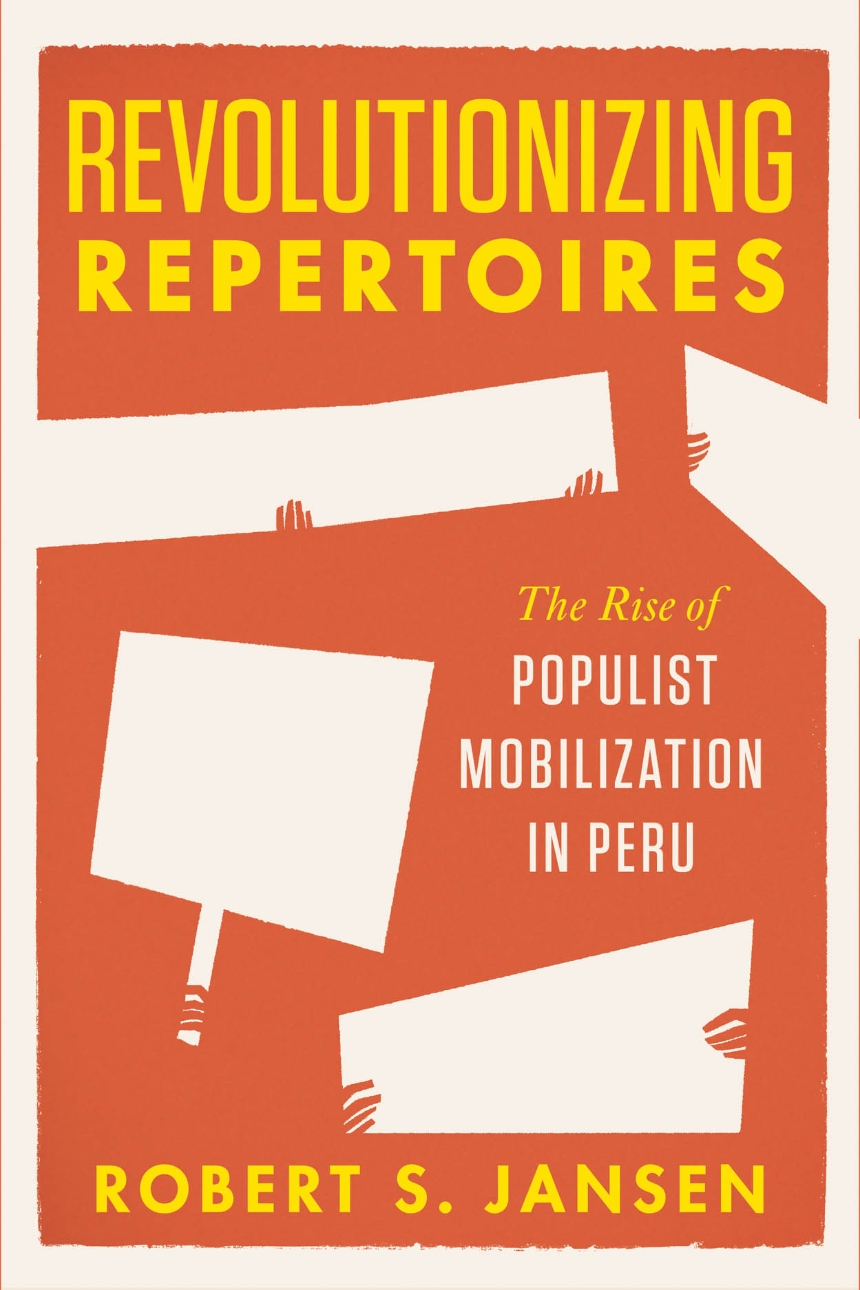Revolutionizing Repertoires
The Rise of Populist Mobilization in Peru
9780226487441
9780226487304
9780226487588
Revolutionizing Repertoires
The Rise of Populist Mobilization in Peru
Politicians and political parties are for the most part limited by habit—they recycle tried-and-true strategies, draw on models from the past, and mimic others in the present. But in rare moments politicians break with routine and try something new.
Drawing on pragmatist theories of social action, Revolutionizing Repertoires sets out to examine what happens when the repertoire of practices available to political actors is dramatically reconfigured. Taking as his case study the development of a distinctively Latin American style of populist mobilization, Robert S. Jansen analyzes the Peruvian presidential election of 1931. He finds that, ultimately, populist mobilization emerged in the country at this time because newly empowered outsiders recognized the limitations of routine political practice and understood how to modify, transpose, invent, and recombine practices in a whole new way. Suggesting striking parallels to the recent populist turn in global politics, Revolutionizing Repertoires offers new insights not only to historians of Peru but also to scholars of historical sociology and comparative politics, and to anyone interested in the social and political origins of populism.
Drawing on pragmatist theories of social action, Revolutionizing Repertoires sets out to examine what happens when the repertoire of practices available to political actors is dramatically reconfigured. Taking as his case study the development of a distinctively Latin American style of populist mobilization, Robert S. Jansen analyzes the Peruvian presidential election of 1931. He finds that, ultimately, populist mobilization emerged in the country at this time because newly empowered outsiders recognized the limitations of routine political practice and understood how to modify, transpose, invent, and recombine practices in a whole new way. Suggesting striking parallels to the recent populist turn in global politics, Revolutionizing Repertoires offers new insights not only to historians of Peru but also to scholars of historical sociology and comparative politics, and to anyone interested in the social and political origins of populism.
288 pages | 18 halftones, 1 map, 2 line drawings, 4 tables | 6 x 9 | © 2017
History: Latin American History
Political Science: Political and Social Theory
Sociology: Individual, State and Society, Social Change, Social Movements, Political Sociology
Reviews
Table of Contents
Preface
Abbreviations and Terms
Abbreviations and Terms
Introduction
1 Who Did What? Establishing Outcomes2 The Social Context of Action: Economy, Infrastructure, and Social Organization
3 The Political Context of Action: Collective Actor Formation in a Dynamic Political Field
4 The Sources of Political Innovation: Habit, Experience, and Deliberation
5 Practicing Populist Mobilization: Experimentation, Imitation, and Excitation
6 The Routinization of Political Innovation: Resonance, Recognition, and Repetition
Conclusion
Appendix A: Chronology
Appendix B: Population, Suffrage, and Exclusion
References
Index
Appendix B: Population, Suffrage, and Exclusion
References
Index
